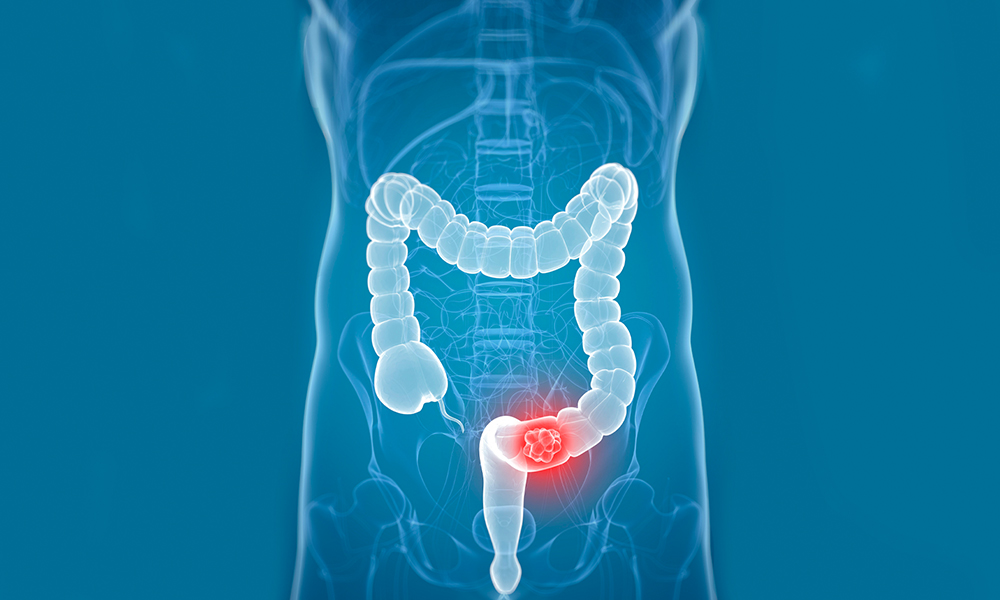
Cancer of the colorectal tract is a form of cancer that can affect both the colon and the rectum. It is the third most common cancer worldwide, and early detection and treatment is crucial for a good outcome. Surgery is a common and effective treatment for colorectal cancer, and there are several different types of surgical procedures that can be performed.
Types of Colorectal Cancer Surgery
Colectomy
A colectomy is a procedure in which a portion of the colon is removed. This is the most common surgical procedure performed for colorectal cancer. There are two main types of colectomies: partial colectomy, in which only a portion of the colon is removed, and total colectomy, in which the entire colon is removed.
Resection
A resection is a procedure in which the cancerous portion of the colon is removed, along with a margin of healthy tissue around it. This helps to reduce the risk of the cancer spreading or recurring.
Anterior Resection
An anterior resection is a type of resection in which the cancerous portion of the rectum is removed. This type of procedure is typically recommended for cancers that are located in the lower part of the rectum.
Abdominoperineal Resection (APR)
An APR is a procedure in which the rectum and anus are removed. This type of procedure is typically recommended for cancers that are located higher up in the rectum, where a traditional anterior resection cannot be performed.
Additional Treatments for Colorectal Cancer
In addition to surgery, there are several other treatments that may be recommended for colorectal cancer. These can include:
Chemotherapy
Chemotherapy uses drugs to kill cancer cells. It may be recommended before or after surgery to help shrink the cancer and reduce the risk of it spreading.
Radiation therapy
Radiation therapy is a method of treating cancer that makes use of high-energy radiation to destroy cancer cells. It may be recommended before or after surgery to help shrink the cancer and reduce the risk of it spreading.
Targeted therapy
Targeted therapy uses drugs to target specific molecules that help cancer cells grow. This type of treatment may be recommended for some patients with advanced colorectal cancer.
The type of treatment recommended for colorectal cancer will depend on several factors, including the stage and location of the cancer, the patient’s overall health, and the surgeon’s expertise. Your surgeon will be able to provide the best advice for your specific case.
FAQ for Surgery for Colorectal Cancer
What are the types of colorectal cancer surgery?
The main types of colorectal cancer surgery are colectomy, resection, anterior resection, and abdominoperineal resection (APR).
What other treatments may be recommended for colorectal cancer?
In addition to surgery, other treatments for colorectal cancer may include chemotherapy, radiation therapy, and targeted therapy.
What should I expect after colorectal cancer surgery?
After colorectal cancer surgery, patients may experience pain, discomfort, and changes in bowel function. It is important to follow the surgeon’s instructions for recovery, and to attend all follow-up appointments to monitor for any signs of cancer recurrence.
How can I find the right surgeon for colorectal cancer surgery?
When choosing a surgeon for colorectal cancer surgery, it is important to consider their experience and expertise, as well as their success rates and patient reviews. It is also important to find a surgeon who you feel comfortable with and who you trust to provide the best possible outcome.
Surgery for Colorectal Cancer: Surgeon İbrahim Ağaçkıran
Surgeon İbrahim Ağaçkıran is a highly experienced and skilled surgeon who specializes in colorectal cancer surgery. With years of experience and a commitment to providing the best possible outcome for his patients, Surgeon İbrahim Ağaçkıran is a top choice for those seeking surgery for colorectal cancer.
Do people often undergo significant surgery for colon cancer?
Depending on the extent and location of colon cancer, surgical treatment might range from minimally invasive techniques to large operations. Laparoscopic surgery is an effective option for treating colon cancer in its early stages, whereas open surgery may be necessary for more advanced cases.
How effective is surgery for colon cancer?
Factors including the disease’s stage and location, the patient’s general health, and the surgeon’s expertise all contribute to whether or not colon cancer surgery is successful. In most cases, prognosis improves when cancer is diagnosed and treated at an earlier stage. The 5-year survival rate following surgery is over 90% if the cancer has not progressed beyond the colon.
Can surgery be effective in curing colon cancer?
Colon cancer surgery has a high success rate in curing the disease if it is caught early enough and has not spread. Some patients, although having undergone successful surgery, may need further therapies like chemotherapy or radiation to lower the chance of recurrence.
How long does it take to get well after having surgery for colon cancer?
The length of time needed for recovery from surgery to treat colon cancer varies from patient to patient. Patients often recover fully between four to six weeks. However, certain patients, especially those who have undergone extensive surgery, may require more time for recuperation.
A regular life after colon cancer surgery?
After having colon cancer removed surgically, many people are able to lead healthy, regular lives again. By receiving regular checkups, patients can keep their health stable and lessen their chances of experiencing a relapse.
After having colon cancer surgery, how is life now?
The outlook for survivors of colon cancer surgery varies from patient to patient and from procedure to procedure. Although some people may require less time to recuperate and get back to their regular routines, others may be affected more severely. However, most people can have a positive outcome and continue a normal, healthy life following colon cancer surgery with the right treatment and follow-up.
Is there any treatment for colon cancer without surgery?
In all cases of colon cancer, surgery is the go-to treatment.
Radiation treatment may be recommended prior to surgery if the tumor is particularly big. In the event that the surgeon is unable to remove all of the cancerous tissue during surgery, radiation therapy may be recommended.
In advanced cases of colon cancer, chemotherapy and immunotherapy may be used in conjunction with or after surgery. Adjuvant therapy describes such treatment.
After having colon cancer surgery, will I require a colostomy bag?
The majority of persons who have had colon cancer surgery do not require the use of a colostomy bag.
Conditions like inflammatory bowel disease, which harm the healthy colon tissue, increase the likelihood that you may need a colostomy bag even if cancer is absent (IBD).
What are the ways to prevent colon cancer?
It’s possible that a colostomy will be necessary for only a short period of time (between 2 and 6 months, according to one reliable source) while your intestine heals.
However, if your doctor determines that you are not healthy enough for surgery, or if the colon cancer has progressed too far for surgery to be helpful, you may be offered radiation therapy or chemotherapy instead.
Colorectal cancer can be prevented through a combination of lifestyle changes and early detection. Here are some ways to reduce the risk of developing colorectal cancer:
1. Eating a healthy diet
A diet rich in fruits, vegetables, and whole grains and low in red meat and processed foods may reduce the risk of colorectal cancer.
2. Maintaining a healthy weight
Obesity has been linked to an increased risk of colorectal cancer.
3. Staying physically active
Regular physical activity has been shown to reduce the risk of colorectal cancer.
4. Quitting smoking
Smoking is a known risk factor for many types of cancer, including colorectal cancer.
5. Limiting alcohol consumption
Excessive alcohol consumption has been linked to an increased risk of colorectal cancer.
6. Getting regular screenings
Screening tests such as colonoscopies can detect precancerous polyps, which can be removed before they turn into cancer. Screening is recommended for people over the age of 50 or earlier if there is a family history of colorectal cancer.
7. Taking care of your overall health
Managing conditions such as inflammatory bowel disease and maintaining a healthy gut microbiome may also help reduce the risk of colorectal cancer.
Remember, early detection is key to successful treatment of colorectal cancer, so be sure to talk to your doctor about your risk and the best screening plan for you.
Conclusion
In conclusion, colorectal cancer is a serious condition that requires prompt treatment. Surgery is a common and effective treatment option, and there are several different types of surgical procedures that can be performed. With the right surgeon and proper care, patients can achieve a good outcome and return to a normal, healthy life.













I had tube stomach surgery to my teacher İbrahim. I was very nervous before the surgery. The teacher explains everything in great detail. I didn't have any pain except for the first few hours after the surgery. I feel very good now. Thank you very much to my teacher and his team. I would recommend it to everyone.
Hi Ibrahim Elif beceremed from Aksaray to be weak after many years until they met our teacher today I follow my 3 day agackiran fortunately our teacher friendly operation evimdeyim positive energy once you get to know and I regret it I wish I didn't know what fear is before you panic if I was my suggestion to everyone is our teacher closed his eyes forget about everything gelinkimse Ibrahim's smile makes all the guarantees which I thank very much for everything you people must be happy happy like I've known pain make sure you thank God for each valuable sehirde
Hi, I tried everything for the sake of slimming years and now stomach surgery but I didn't get the result but I was too scared I'd decided to have a teacher Ibrahim afterwards, I found there was around me afterwards, I went to see her surgery in patients with and for the first time I saw a doctor speaks so loud and clear. i had surgery 2 days ago and everything is very nice now and I am standing up, I have started my walks. Thank you very much to my teacher and his team, if you have such an opinion without the slightest hesitation, I would say meet with Ibrahim teacher without wasting time, you will never regret it...
He is the sweetest, most smiling, most affectionate, most sincere and such a successful doctor I have ever seen in my life. I felt not like I was visiting a doctor, but like I was visiting someone from my family. I couldn't even go to the preliminary interview because I was afraid for years, my teacher convinced me in 10 minutes for obesity surgery. I had surgery about a week ago, I'm taking good care of my two children right now, and I've even been able to return to my job, I'm glad that you exist, Ibrahim teacher, I love you very much.